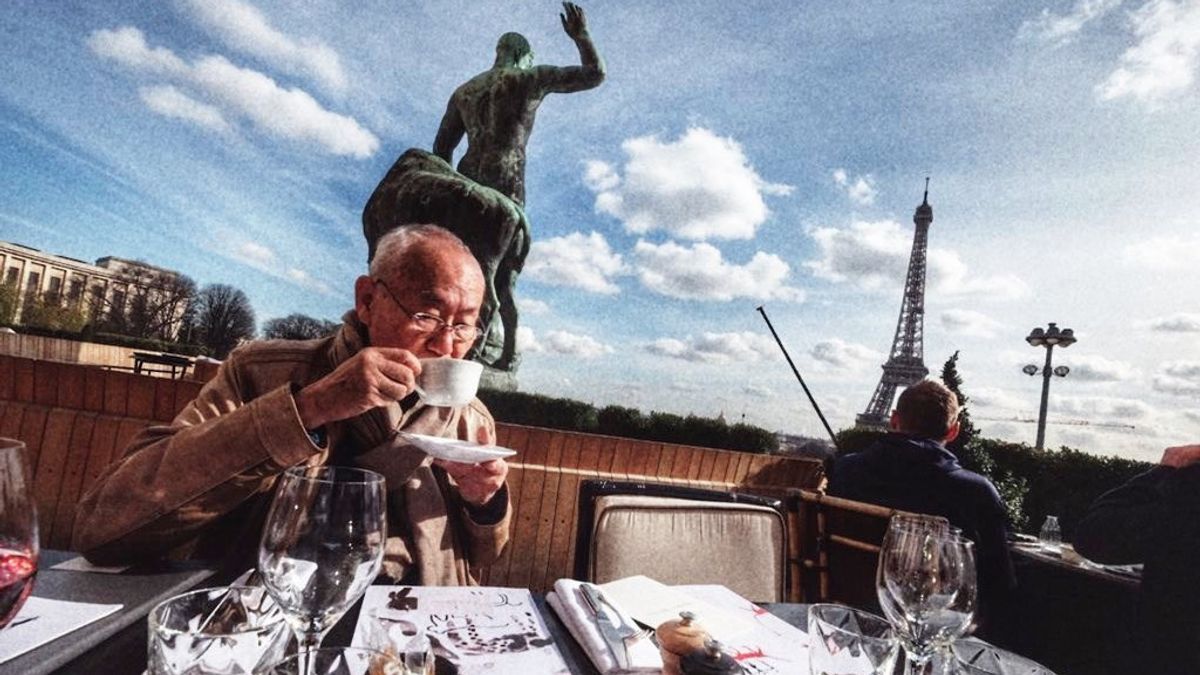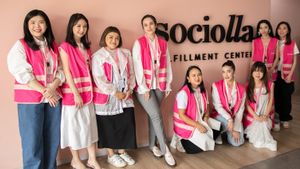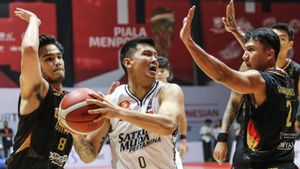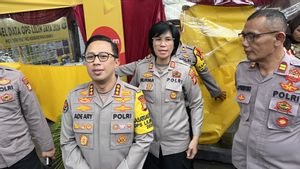JAKARTA - The name of culinary expert William Wongso became a topic of conversation after guiding British chef Gordon Ramsay to make rendang in the National Geographic program, Gordon Ramsay: Uncharted. Many netizens are concerned about why it is not the original Minang cook who is Ramsay's mentor. But for those who know him, they really appreciate William because in addition to his ability as an archipelago culinary expert, he is also one of the figures who has succeeded in popularizing rendang to the world.
William Wirjaatmadja Wongso or better known as William Wongso was born in Malang, April 12, 1947. He was active as a consultant in the gastronomy field and founded many culinary businesses in Indonesia.
The founder of Aku Cinta Makanan Indonesia (ACMI) has traveled and become a world-recognized professional chef. He is even known as Indonesia's food ambassador through his limp diplomacy. So how did William's career journey in the culinary field begin?
William said his career in the culinary field began when he was in bread food. "My career started professionally while in the field of bread. I learned to bake in Europe," William said in an interview with RTV.
His talent was proven when he became the only Indonesian to become a member of the Elite de la Boulangerie International club. The club is a collection of the best bakers around the world who now number only 33 people.
Then because of his love for cooking, he explores a lot of various food flavors. From there he began to explore many dishes and in turn focused on studying Indonesian cuisine. "It is because I enjoy tasting a variety of foods, so I am like a taste collector," he said.
Rendang diplomacyIn 2011 and 2017, rendang and fried rice were ranked first and second of CNN Travel's 50 Best Foods in the World. What an assessment that doesn't just come out of nowhere.
Quoting Hanifa Syafitri in Indonesia's Brand Image Strategy through Gastrodiplomacy In 2011-2018: Case Study of Culinary Rendang (2019), this achievement is arguably the result of efforts to advance gastrodiplomacy or culinary diplomacy initiated by William. More specifically, he initiated rendang diplomacy in 2010.
The program is not without foundation. Wongso has tested it before. In 2009 he succeeded in introducing rendang at the World Food Conference in Napa, California, United States. From there he believes that rendang can be one of the tools of soft diplomacy for Indonesia.
The event then continued. In 2015, for example, still in the US, at the Gala Dinner, the United States Chamber of Commerce William Wongso again introduced rendang to an international audience, especially US citizens. The event was also attended by President Joko Widodo.
ExpertiseWilliam's expertise in the culinary field is beyond doubt both in practice and theory. The reason is that he himself has written several books about culinary.
Almost all of his books discuss Indonesian culinary issues. In 2005, he wrote a special Padang culinary book entitled Spicy Padang Cookies which he published in English.
In addition, he also published books Indonesian Cakes & Desert (2002) and Homestay Indonesian Cooking (2005). Until recently, William wrote the book Cita Rasa Indonesia (2018).
In his latest book, William explains what exactly the characteristics of Indonesian cuisine are. According to him, although they vary, the taste of archipelago food has something in common.
"Maybe the dishes are different from each other, but there are similarities that unite them all: sour, spicy, sweet, fragrant and crunchy," William said in a video showing the book Cita Rasa Indonesia quoted by Tempo.
William Wongso also stated that even in a thousand sentences, it would not be able to describe the complexity of Indonesia's culinary heritage which is rooted in thousands of islands in Indonesia.
"The best way to describe Indonesian culinary flavors as a reflection of regional flavors, can only be tasted in the kitchens of local residents," he said. Therefore, William finally published a book entitled The Taste of Indonesia.
The English, Chinese, Japanese, Arabic, and French versions are automatically generated by the AI. So there may still be inaccuracies in translating, please always see Indonesian as our main language. (system supported by DigitalSiber.id)












